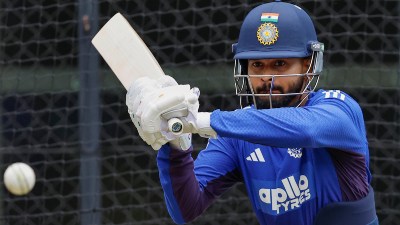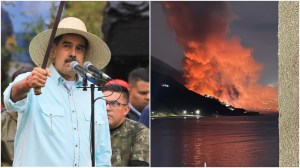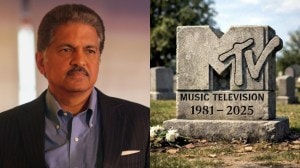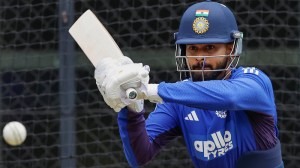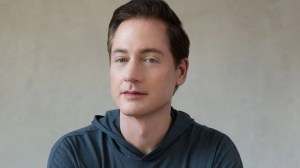Explained: The planned summit for ‘lasting peace’ in Ukraine, why Russia’s participation is uncertain
What is the background of the proposal, and who is likely to attend? If Russia's presence is uncertain, what makes the Swiss negotiators hopeful?
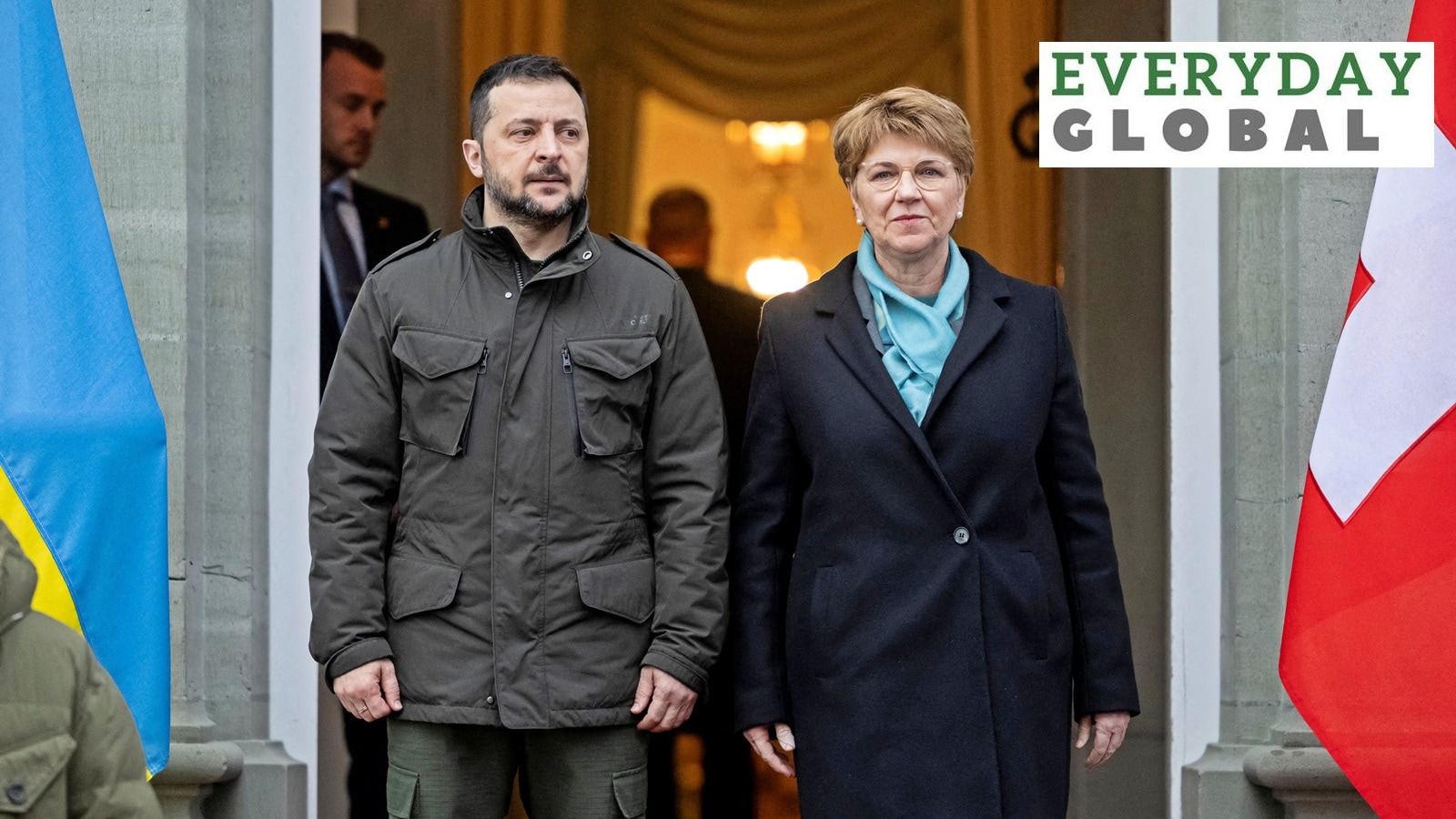 President of the Swiss Confederation Viola Amherd welcomes Ukrainian President Volodymyr Zelenskiy on January 15, 2024, in Kehrsatz near Bern, Switzerland. (Keystone/Alessandro Della Valle/Pool via REUTERS/File Photo)
President of the Swiss Confederation Viola Amherd welcomes Ukrainian President Volodymyr Zelenskiy on January 15, 2024, in Kehrsatz near Bern, Switzerland. (Keystone/Alessandro Della Valle/Pool via REUTERS/File Photo)The government of Switzerland announced on Wednesday (April 10) that it will host a major summit on June 15-16 as a “first step” for lasting peace in Ukraine following Russia’s invasion in February 2022.
More than 100 countries could participate, and India has also been invited, but there remains a question mark over the presence of Russia at the summit.
According to the Associated Press, the summit will be “following up on a plan laid out in recent months by Ukrainian President Volodymyr Zelenskyy and Swiss Foreign Minister Ignazio Cassis”.
Swiss President Viola Amherd warned against expecting too much: “We’re not going to sign the peace deal at this conference.” In March, Russian Foreign Minister Sergey Lavrov had said Russia would not hold discussions based on the Ukrainian plan.
What is known about the summit, and what could happen? We explain.
What is the backdrop of the summit, and what conditions have the two countries put forth?
Various attempts have been made for peace since 2022. Turkey was able to negotiate the movement of grains from Ukraine through the Black Sea, given Ukraine’s significance as a major producer of wheat and corn, for global trade and food security.
However, bringing an end to the war itself has proved difficult. In February 2024, President Zelenskyy said 31,000 troops had died, along with “tens of thousands” of civilians. Russia’s Defence Ministry acknowledged just over 6,000 deaths as of January 2023, which is likely an undercount.
Ukraine has said that unless Russian hostilities are brought to an end and Russia relinquishes the areas it gained in the war — reportedly a little less than a fifth of all Ukrainian territory — Ukraine will not be involved in the peace talks.
And Russia has reiterated the terms “denazification” and “demilitarisation” of Ukraine — it declared goals for the invasion.
In his televised address to his people in February 2022, President Putin said the goal of the military action was “to protect the people that are subjected to abuse, genocide from the Kiev regime for eight years, and to this end we will seek to demilitarize and denazify Ukraine and put to justice those that committed numerous bloody crimes against peaceful people, including Russian nationals.”
What have been some of the suggestions in the past?
In December 2022, Ukraine suggested a 10-point plan that focused on “restoring Ukraine’s territorial integrity”, “withdrawal of Russian troops and cessation of hostilities”, “restoration of Ukraine’s state borders with Russia”, among other issues related to release of prisoners and food security.
Russia rejected this plan, but was more supportive of a 12-point plan suggested by China in February 2023. Lavrov termed it “reasonable” and “based on an analysis of the reasons for what is happening and the need to eliminate these root causes”.
That plan spoke about ending hostilities and protecting civilians in broad terms, but made no mention of Russia returning territory. It also stressed that “The security of a region should not be achieved by strengthening or expanding military blocs.”
This was an apparent reference to the expansion of Western security alliance NATO’s membership in recent years. The possibility of Ukraine joining NATO is seen as a trigger for Russia’s action by some analysts.
Who is likely to attend the Swiss summit in June?
Swiss Foreign Minister Cassis said of the proposed summit, “It has to be clear from the start that Russia — sooner or later — has to be there.” He added, “Now, it’s not mandatory that it’s there the first day. We could also imagine that on the first day, people might agree about how to better invite in Russia.”
He added that a peace process “cannot happen” without Russia, even if the country’s leaders were not present for the first meeting.
The AP reported the Swiss government as saying that “early talks toward arranging the conference involved the European Union and envoys from the so-called Global South, including Brazil, China, Ethiopia, India, Saudi Arabia and South Africa.”
Last month, in his first visit to India, Foreign Minister of Ukraine, Dmytro Kuleba, met External Affairs Minister S Jaishankar and the two leaders discussed India’s participation at the peace summit. While India has expressed concerns over the ongoing violence, it has refrained from blaming either side.
- 01
- 02
- 03
- 04
- 05


